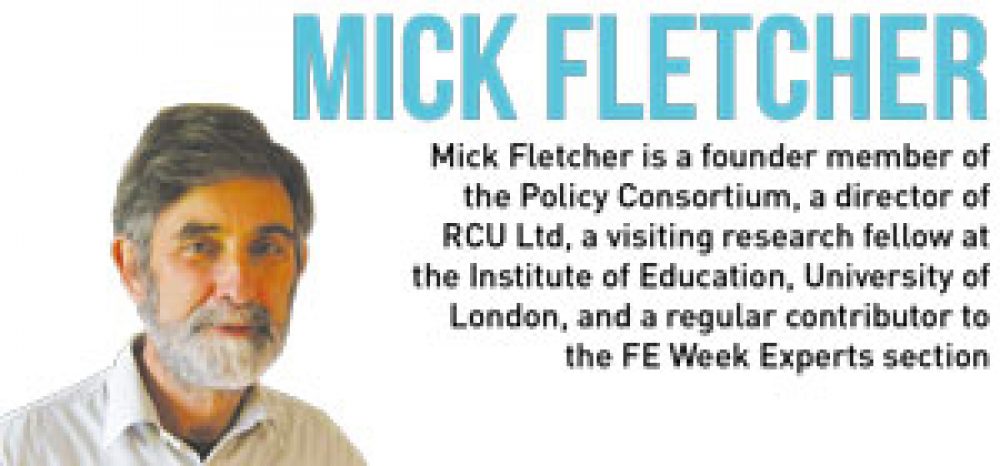A month after the launch of the Department for Business, Innovation and Skills (BIS) ‘dual mandate’ consultation on the future of FE and Mick Fletcher reflects on what the hefty 90-page document presents.
It is a measure of how far our expectations of BIS have sunk that a deeply flawed paper such as the consultation on a ‘dual mandate’ has received such a positive reception.
The reason is obvious; after years in which the answer to every issue in vocational education has been more apprenticeships the FE sector is pathetically grateful to be given any mandate at all; offered two they think Christmas has come early. On closer examination however the paper is not only confused but dangerous.
The confusion starts in the title. Having ascribed the dual mandate to adult vocational education, and decided early on that one part of that mandate is higher vocational education all that is left is lower vocational education. That would seem trite however so the lower level stuff is wrapped up as ‘second chance ’. Unfortunately any reasonable definition of second chance goes far beyond the confines of vocational education as do many of the examples in the document. Indeed some, though clearly valuable like liberal adult education, are neither vocational nor much to do with second chance.
We need to ask why BIS couldn’t bring itself to think about mandates for adult education as whole which could have resolved this definitional problem: it was probably because it shows there should be far more mandates than two.
Higher vocational education, one part of the dual mandate, is an area where colleges have a proud track record and could do more
Higher vocational education (HVE), one part of the dual mandate, is an area where colleges have a proud track record and could do more. The implication in the document however appears to be that the development of HVE should come about through a redirection of adult FE. Surely it should come about through a redirection of higher education.
The resources devoted to higher education are many times larger than those remaining in the adult FE budget, even excluding the £5bn or so spent on university research.
The BIS budget to support higher education teaching is almost £9bn even though most higher education teaching is funded by student fees. Higher education student maintenance amounts to around £5bn compared with £0.2bn in adult FE.
Not only is there far more scope for developing HVE from within the higher education budget, but colleges should strongly reject the implication that the shortfall in higher vocational education compared with some other countries is due to misplaced priorities in the FE sector.
It is largely due to the very generous treatment of young full time undergraduates in universities compared with all other modes of FE and higher education. Colleges should be keen to help develop HVE, but not at the expense of existing FE programmes and not on the currently unlevelled playing field that obtains.
BIS is also concerned about the second part of the mandate; what it brigades as ‘second chance education’ for adults. Unlike providers however, who would see lack of resource and recognition as the major problems, BIS is concerned about the nature of the market. It wishes to explore how new providers might be brought into the market, how competition might be increased and how commissioning might be developed. BIS looks to pilot a model which would involve prime contractors bidding to deliver a limited range of employment-related outputs specified by commissioning partners.
The experience of programmes such as OLASS, the Work Programme or Skills Support for the Workforce which follow such a model demonstrates its fundamental weakness.
Provision for vulnerable learners is best safeguarded by working with providers that are known and trusted locally, that serve as ‘anchor institutions’ for communities and are committed to adult education for the long term.
The theoretical advantages of sharper competition would be more than offset by the complexity of specifying appropriate outputs, the bureaucracy and inflexibility inherent in public sector procurement processes and the gaming behaviour associated with a manipulative rather than a trust relationship with providers.
The old saying is ‘beware of Greeks bearing gifts’. Beware of BIS bearing mandates.









Your thoughts